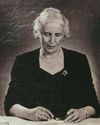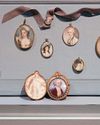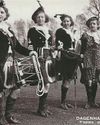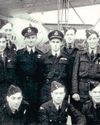
Recently launched on board the classic heritage lightvessel LV18, in Harwich Harbour, Essex, Radio Mi Amigo brings back the nostalgic sounds of the offshore pirate radio stations based on ships that were moored just off the east coast of the UK.
These radio pirates changed the face of broadcasting forever in the summer of 1964 with the swinging style of the pop music that the BBC had refused to play.
Within six months, the stations were attracting millions of new listeners who had "never had it so good". The country was in full employment, teenagers had expendable income to purchase the modern styles of clothing in places like Carnaby Street in London's West End and the King's Road, Chelsea.
The whole scene was led by the powerful music industry. Music pluggers scrambled over each other to get their records played on the pirate stations. The likes of Radio Caroline and Radio London launched new bands into stardom such as the Who, the Moody Blues, the Byrds and many others, and provided an essential platform for bands emerging on the late 60s and 70s scene, with the summer of love of 1967 and the hippy era of progressive rock just around the corner.
Irishman Ronan O'Rahilly was the manager of jazz musician Georgie Fame and was frustrated the BBC would not play his artist's music due to their easy listening policy. With the help of his father, Dr Alfred O'Rahilly, who just happened to own Greenore Port in County Louth, he bought and fitted out MV Fredericia as Radio Caroline.
He moored the ship off Felixstowe and started transmitting pop music to the masses at Easter 1964.
この記事は Best of British の September 2024 版に掲載されています。
7 日間の Magzter GOLD 無料トライアルを開始して、何千もの厳選されたプレミアム ストーリー、9,000 以上の雑誌や新聞にアクセスしてください。
すでに購読者です ? サインイン
この記事は Best of British の September 2024 版に掲載されています。
7 日間の Magzter GOLD 無料トライアルを開始して、何千もの厳選されたプレミアム ストーリー、9,000 以上の雑誌や新聞にアクセスしてください。
すでに購読者です? サインイン

Animal Magic
Hilary Middleton recalls a children's author whose tales are still enjoyed today

BACK IN TIME WITH COLIN BAKER
BoB's very own Time Lord prepares for an alternative to panto, recalls his early reading choices and having his scenes cut from two cutting edge comedies

Marvels in Miniature
Claire Saul learns about the exquisite works on display at a new exhibition being held at a historic Georgian mansion

The Last Post
Michael Foley witnessed the end of an era

The Box of Delights
Chris Hallam remembers how his Christmas 40 years ago was lit up by a magical television drama

The Queen of Stage and Screen
Chris Hallam pays tribute to actress Dame Maggie Smith

Other 07
Jonathan Sothcott looks at the seven Sir Roger Moore films that you should have in your collection

In the Best Possible Taste
Derek Lamb remembers the wireless wizardry of Kenny Everett

POSTCARD FROM BUCKINGHAMSHIRE
Bob Barton remembers a ghostly train journey, enjoys some wassailing and fulfils a long-held ambition of attending a lawnmower festival

MERCY MISSION
John Greeves recounts the remarkable exploits of Sunderland flying boat T9114